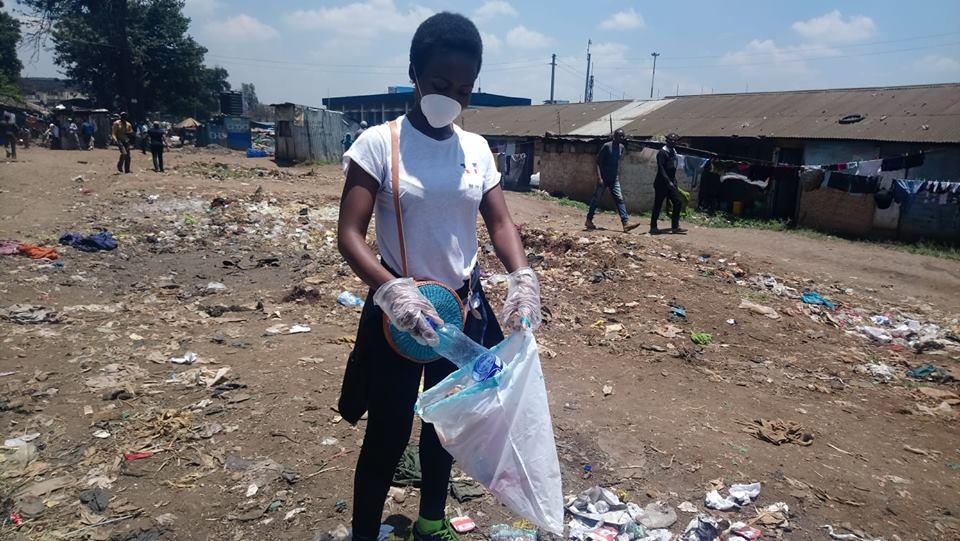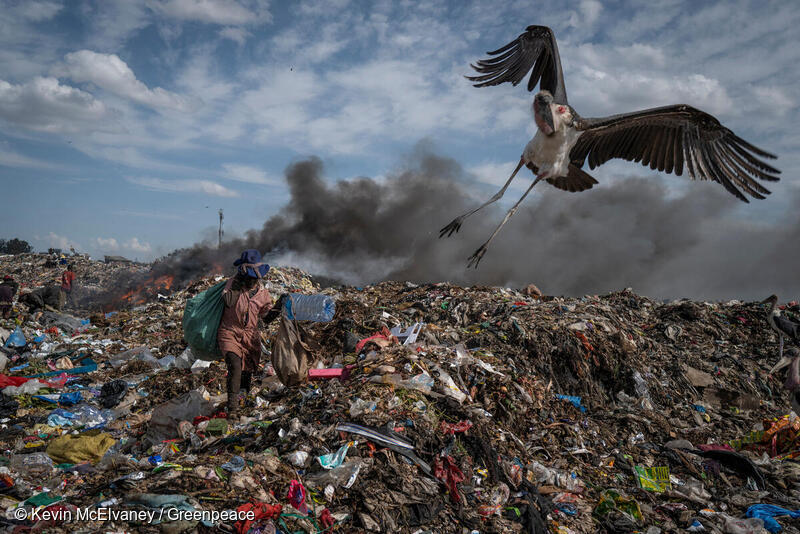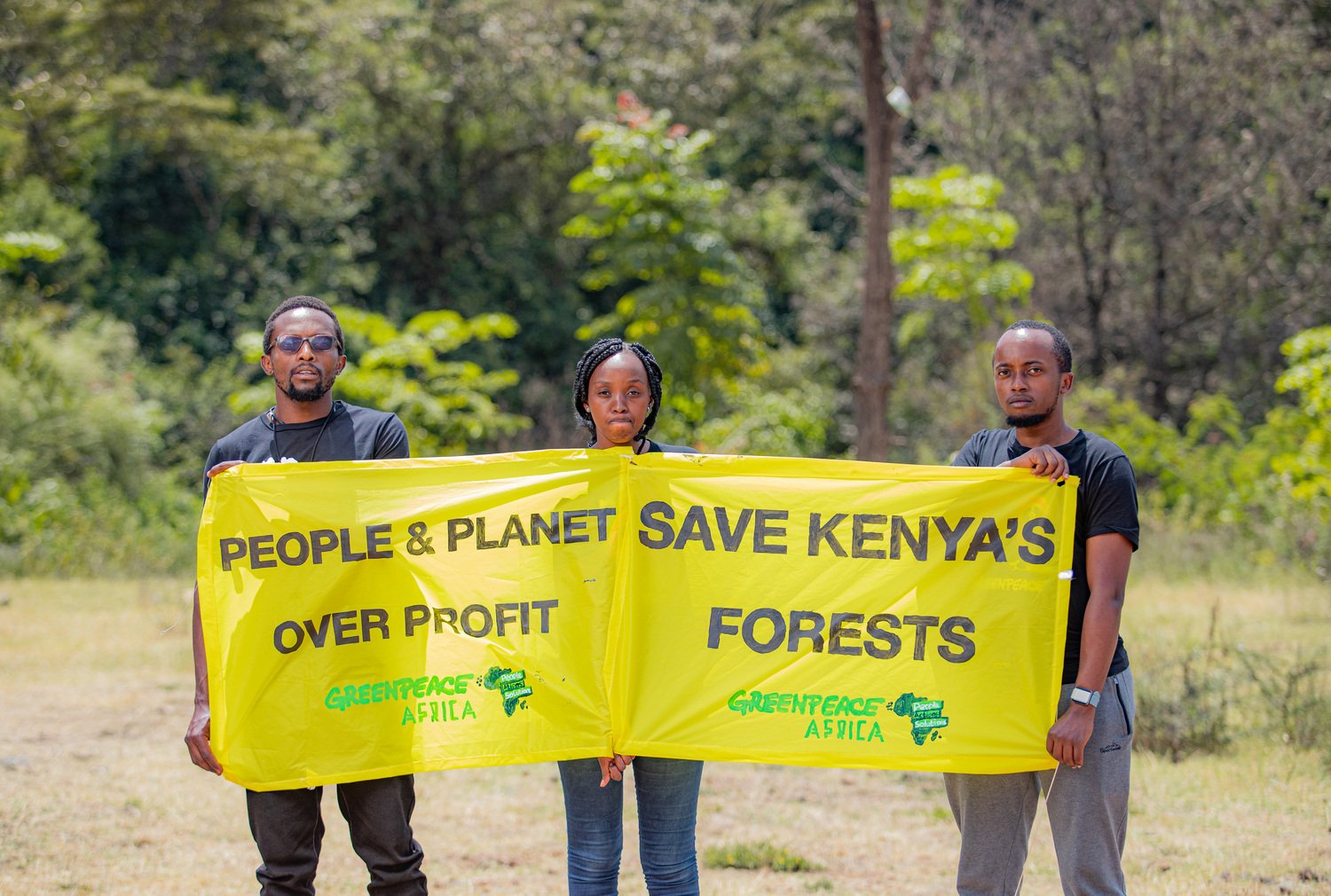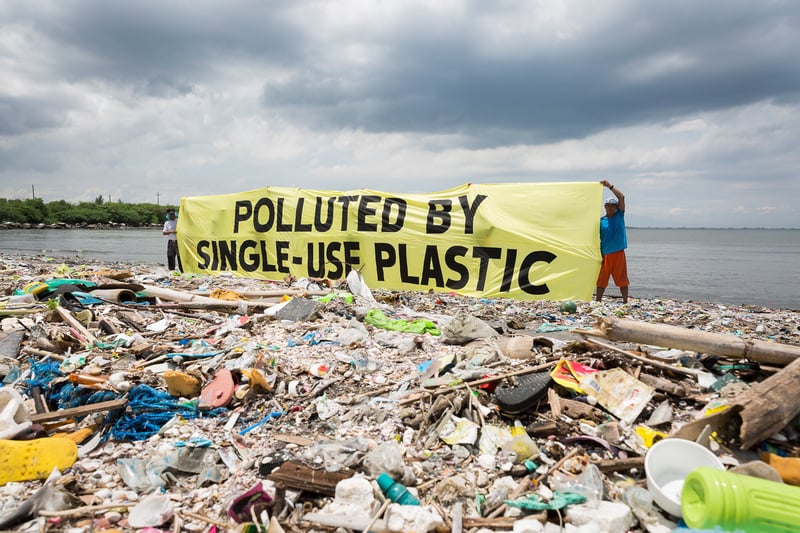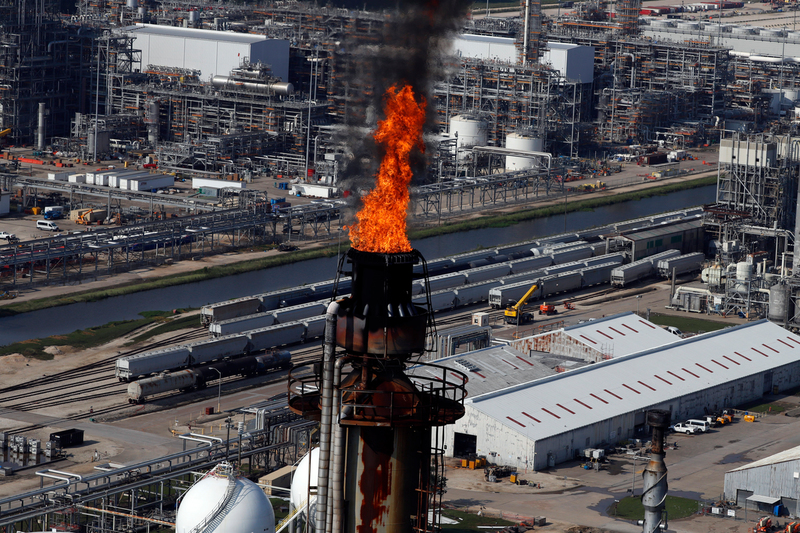
Press Release
Nairobi, 10 September 2020 – A new Greenpeace report, Deception by the Numbers, examines 52 projects touted by the American Chemistry Council (ACC) as “chemical” or “advanced” recycling, finding that many are either not viable or misleadingly promoted as recycling when they largely produce fuels and waxes. The report findings conclude that “chemical recycling” is not a viable solution to the plastic pollution crisis, but rather a bait-and-switch PR tactic meant to create the illusion of progress by industry.
“This report demonstrates the recklessness of the plastic industry to make a quick buck at the expense of the environment. First the ACC attempted to flood Africa with plastics, now they want to whitewash this by seling recycling as a solution. This is why Kenya’s government should be very cautious of the Trojan horse at our doorstep – it will negate our progressive anti-plastics agenda across the continent,” said Greenpeace Africa Senior Political Advisor Fredrick Njehu, who urged Kenyans to sign its petition calling for the government to safeguard existing plastic bans.
The American Chemistry Council is using the fantasy of chemical recycling to mislead investors, governments, and the public into believing that we can recycle our way out of the plastic pollution crisis. Only around 9% of plastic waste actually gets recycled, while the rest is burned, landfilled, or polluting our environment.
“The American Chemistry Council, the plastics industry, and the consumer goods sector need to stop hiding behind the fantasy of chemical recycling,” said Greenpeace USA Plastics Research Specialist Ivy Schlegel. “Turning plastic into even more unneeded fuel is a bad investment and certainly should not be considered recycling. Many of the projects the industry promotes as chemical recycling are not even viable and are meant to give a false sense of progress on the pollution crisis.”
The news of the ACC’s misleading chemical and advanced recycling project list comes as the group faces scrutiny around its efforts to flood Africa with plastics. Last week, The New York Times broke a story around the ACC lobbying the Trump administration to use a US-Kenya trade deal to expand the plastic industry’s footprint across Africa. Documents obtained by Unearthed, Greenpeace UK’s investigative journalism platform, also show that the group lobbied against changes to the international Basel Convention, which puts new limits on plastic waste entering low and middle income countries.
The ACC has touted a list of advanced recycling projects (now up to 62 on its site) that it claims are valued at $5.2 billion. The petrochemical trade association has used this investment figure to push back on those who question the notion of chemical or advanced recycling, including in a recent response to a GAIA report which found that advanced recycling efforts are largely turning plastic into fuel to be burned.
Greenpeace’s report concludes that one third of the total projects touted by the ACC are not likely to be viable and that none of the plastic-to-plastic projects show promise of becoming viable. Less than 50 percent of the projects on the ACC list of advanced recycling efforts meet our basic criteria to be deemed plastic recycling projects. Of the recycling projects we determined to be mechanical or plastic-to-plastic recycling, we found the total processing capacity to be just 0.2% of the plastic waste generated in 2017 if all are successful. All of this means that very little of the industry’s investment has a chance of actually reducing plastic production or pollution.
Notes to the Editors
- Greenpeace’s complete analysis of the ACC’s chemical and advanced recycling projects can be found here: https://www.greenpeace.org/usa/research/deception-by-the-numbers
- Petition to Ministry of Trade can be found here: https://act.gp/2OJrolR
Media Contact
Hellen Dena, Communication officer, +254717104144, [email protected]
